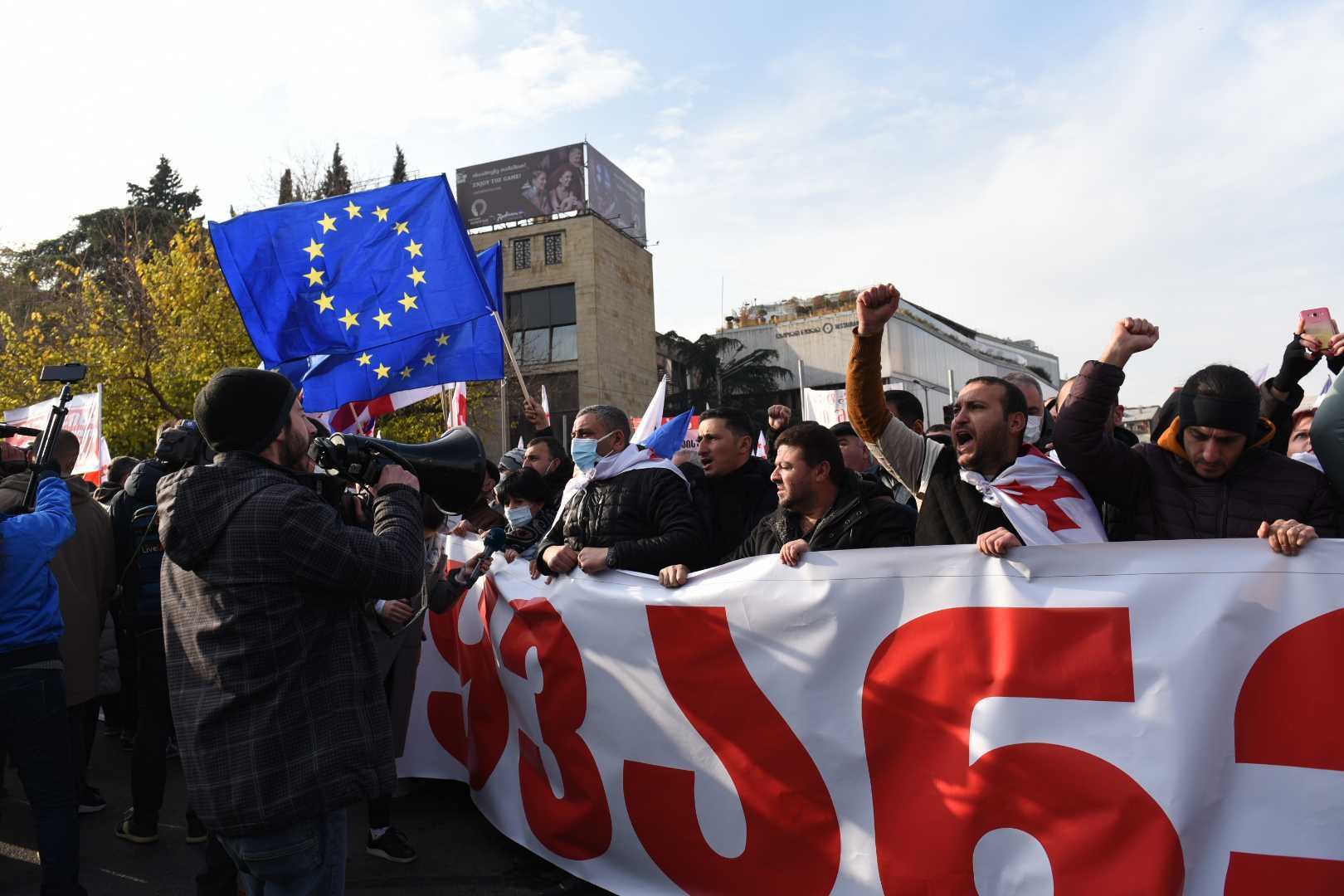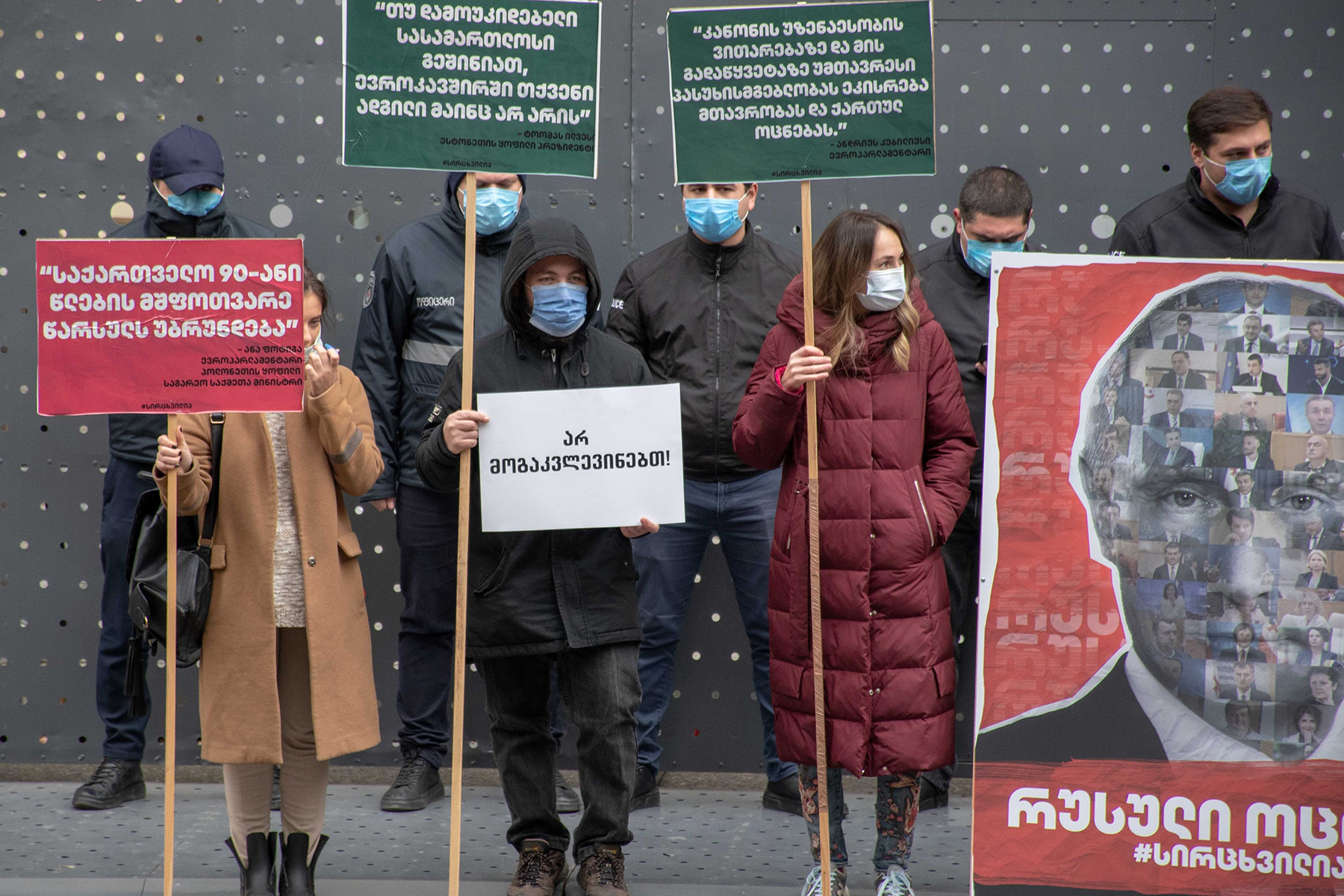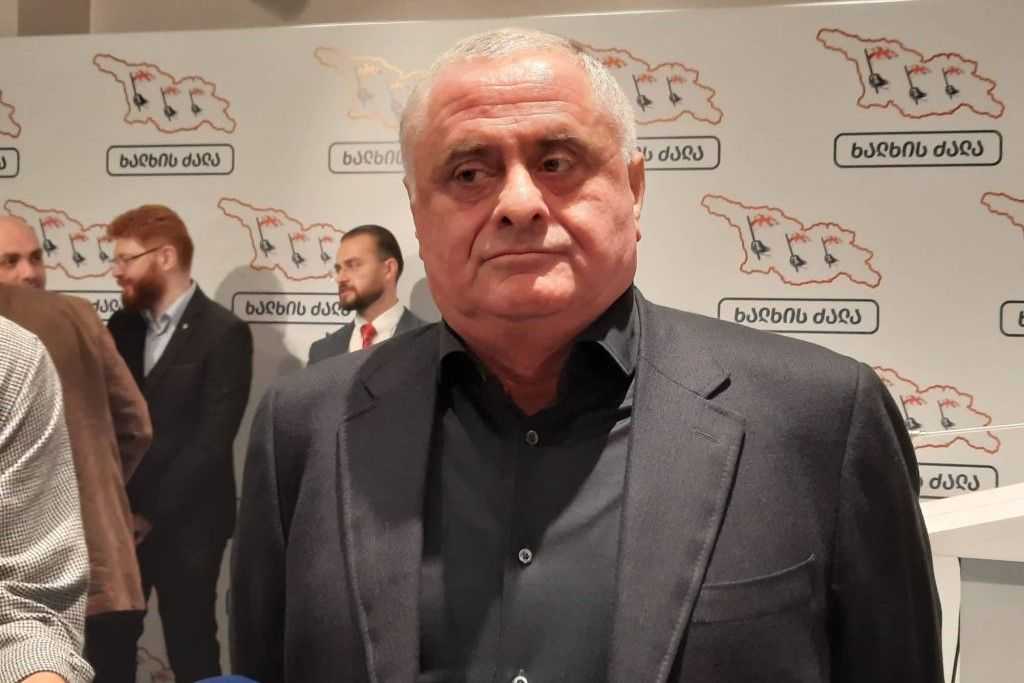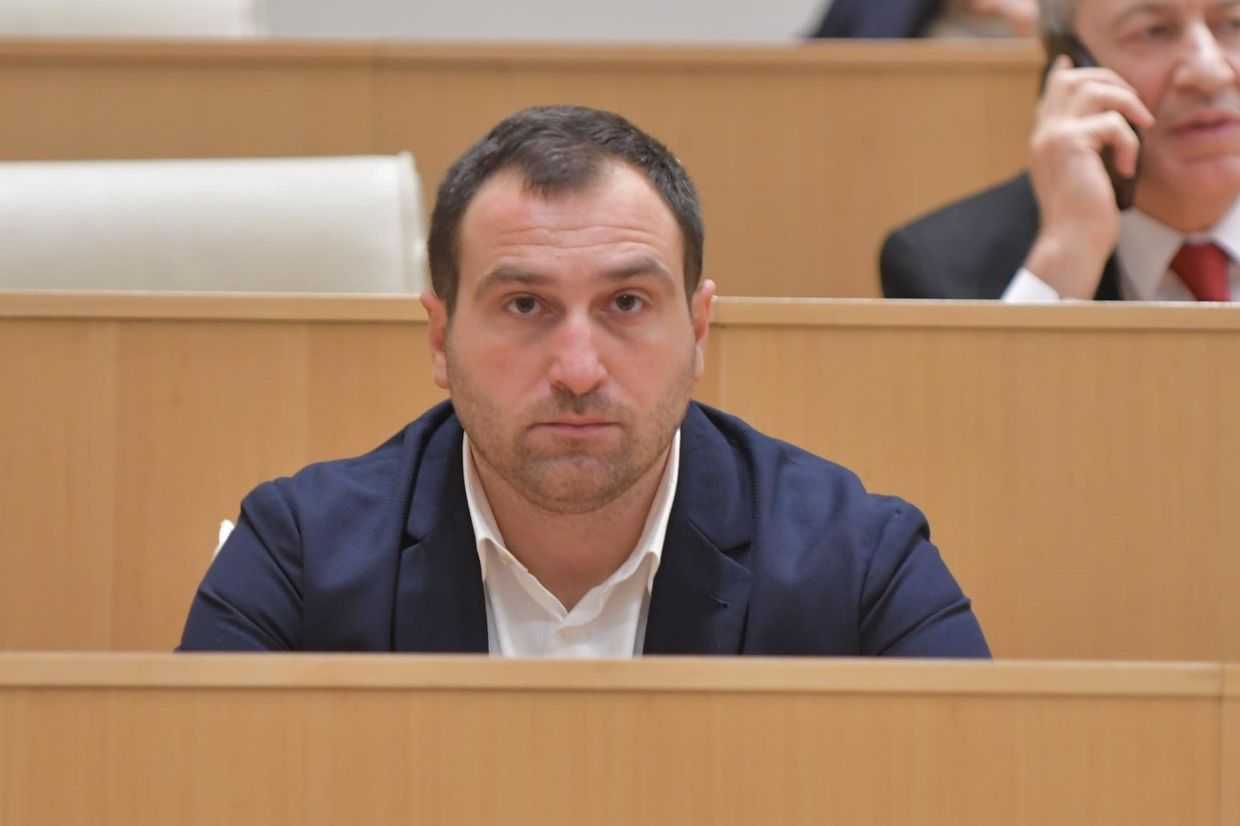
Former Georgian President Mikheil Saakashvili has agreed to be moved to a millitary hospital in Gori and end his hunger strike.
Justice Minister Rati Bregadze offered to transfer the former president to Gori earlier on Friday.
‘I have agreed to travel to a hospital in Gori that was built by me, through a motorway built by me, and end my hunger strike as soon as I’m placed [there]’, Saakashvili said in a written statement, adding that he had no intention to ‘put up with his illegal imprisonment for even a day’.
Saakashvili added that he was ready to face trial ‘but all this should be conducted through a strict adherence to national dignity and legal norms’.
‘I will obey [respect] any ruling made by this kind of court’.
His expected transfer follows growing pressure from domestic and international critics over reports of Saakashvili’s declining health, and reported shortfalls in the medical facility at the Gldani prison where he is currently being held.
It fell short of demands by opposition parties to transfer him to a civilian hospital.
The government had resisted these calls, warning that his supporters planned to free him by force. ‘All the hell will break loose the day he is transferred… they would do anything, including bloodshed’, Georgian Dream chair Irakli Kobakhidze claimed earlier on Friday.
Rumours of his possible transfer to the military hospital in Gori have previously emerged but were rejected by Saakashvili.
Saakashvili has been on hunger strike since his arrest in Tbilisi on 1 October, a day before the second round of local elections. After his health began to deteriorate, the penitentiary authorities moved him from prison in Rustavi to Gldani prison in Tbilisi.
Justice Minister said on Friday that Saakashvili would be returned to Rustavi Prison, a city adjacent to the capital Tbilisi, after his recovery.
The minister also warned that any attempt by his supporters to hinder his transportation or the work of doctors in Gori would result in the former President being returned to prison in Gldani, Tbilisi.
Minutes before the government announced their offer, supporters of the United National Movement, the party Saakashvili founded, gathered in downtown Tbilisi to demand Saakashvili’s transfer to a civilian hospital.

On 1 November, Nika Gvaramia, one of Saakashvili’s lawyers, claimed that there was a plan to transport him to a hospital in Gori where he could be kidnapped by ‘Ossetian special forces’. Gvaramia is also the director of the TV channel Mtavari and was previously a minister in Saakashvili’s government.
Mounting pressure
Supporters of the third Georgian President have been protesting his placement at Gldani Prison claiming that the medical unit there is not adequately staffed or equipped.
The criticism was subsequently shared by two Conciliums of doctors, including a group of eight medical professionals recently formed by Public Defender Nino Lomjaria.
On 18 November, they recommended that Saakashvili be transferred to an intensive care unit at a multi-profile hospital. They confirmed that he was suffering from, among other things, Wernicke encephalopathy and since 8 November, persistent hypokalemia.
The experts described the recently refurbished hospital adjacent to Gldani Prison as still being under testing and lacking a heart catheterisation lab, MRI, and some of the necessary medical staff on standby in case complications were to arise.
Later that day, another of Saakashvili’s lawyers, Beka Basilaia, said that the former president had fainted and fallen over after a meeting with him and other lawyers.

The authorities’ refusal to place him in a civilian hospital as well as denying him the right to attend court hearings on power abuse charges has also drawn criticism from abroad.
Hours before the government’s offer on Friday, US State Department spokesperson Ned Price urged the government to treat Saakashvili ‘fairly and with dignity’ and to follow the Public Defender’s recommendations on his medical treatment.
‘We also strongly urge the Government of Georgia to ensure Mr Saakashvili is able to attend all court hearings for his pending criminal cases, in line with international law’, his statement read.
Also on Friday, the Foreign Ministry of Ukraine, to which Saakashvili is a citizen, renewed their calls to the Georgian government to ‘provide Mikheil Saakashvili with proper medical care’.









